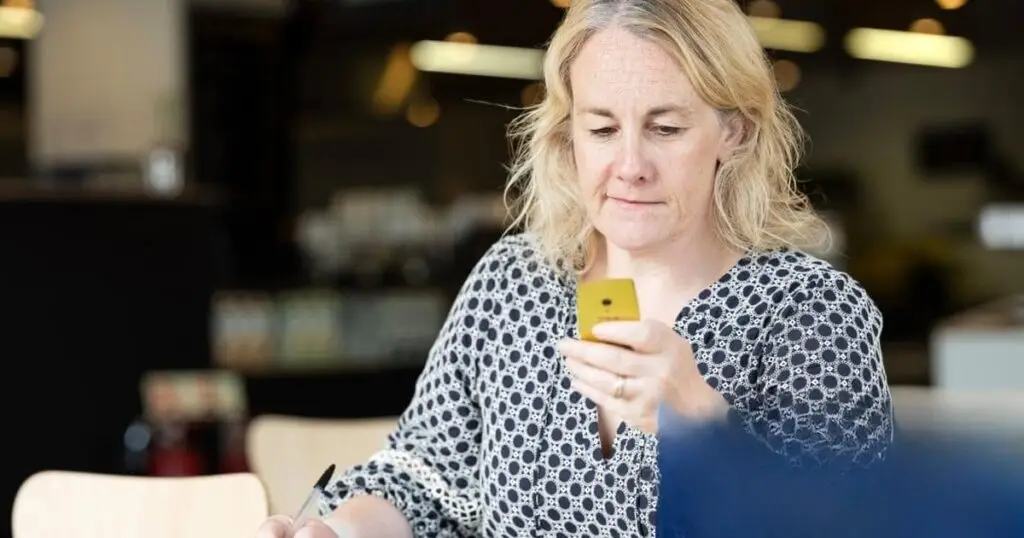Imagine the struggle of tapping out a text on a phone with tiny buttons. It feels like a Herculean task. The retro Nokia 3210 promises to free you from app notifications, but does it really? Meanwhile, the pressure builds when you need to focus on something important like a school trip.
As more people, especially Gen Z and millennials, turn to simpler phones for mental health reasons, schools are even encouraging it. However, living without a smartphone can be challenging in today’s app-reliant world. This account explores the pains and surprisingly few gains of spending a week with a ‘dumbphone.’
Frustrations with the Tiny Buttons
After roughly ten minutes of furious tapping on tiny buttons, frustration was mounting. Trying to write a text on the ‘retro’ Nokia 3210 felt like a Herculean task. It left one wondering about the supposed liberation these ‘dumbphones’ promised.
This ‘detox’ or ‘dumb’ phone trend targets those stressed by constant app notifications. But, in that moment, smashing it seemed more plausible than enjoying the break from modern technology.
A School Trip Distraction
The timing couldn’t have been worse. Escorting a school trip around the Museum of London Docklands meant trying to stay off the phone. The group of 11-year-olds seemed puzzled: Why was this woman texting so badly, and why was her phone so rubbish?
Despite the semi-urgent nature of the message, perseverance was key. However, the result was a text that seemed like a desperate SOS.
Gen Z and Millennials Shifting to Simplicity
More people, especially younger generations, are moving towards basic phones like this one. The reasons often link back to mental health concerns from excessive smartphone and social media use.
Interestingly, some schools are taking this approach as well. Pupils, such as those starting at Eton, are being encouraged to ditch their iPhones for brick phones, promoting a simpler, less distracted lifestyle.
Off the Grid on a Busy News Day
Without access to work emails or the internet on the go, it felt like stepping back in time.
Unfortunately, this experiment coincided with significant news events. It was a bad day to be offline with headlines like the Donald Trump assassination attempt and England’s Euro 2024 defeat making waves.
Navigating life without predictive text was another challenge, making messaging nearly impossible for the time being.
A Walk Down Memory Lane
Reflecting on past habits, the reporter recalled a time when people carried around pocket diaries, train timetables, and paperbacks.
Back then, the original Nokia 3210, which debuted in 1999, was the epitome of mobile technology. However, today’s world demands much more from our devices.
The list of things taken over by smartphones is long. Bank branches, ticket offices, cameras, and satnavs have all become digitalised.
A Struggle with Modern Conveniences
During this smartphone-free week, everyday tasks became more challenging. There was no ‘wave and pay’ for a morning coffee, and reading material was left behind.
The absence of mindless Instagram content became apparent. No scanning headlines or filtering emails was possible.
An attempt to navigate old-school menus added to the frustration. Even the ‘boing’ sound for every key press was a nuisance.
Marketing the ‘Detox’ Phone
Adverts for this Nokia reboot show models styled like Jennifer Aniston from the Friends era. They promise a return to a time when conversations mattered more than likes and shares.
Browsing the internet on this phone felt like going back to dial-up days. It was slow and cumbersome.
Although it has some modern features like 4G and Bluetooth, the quality reminded one of the Blair Witch Project.
The Cost of Staying Connected
For many, going without a smartphone isn’t a choice. A significant number of households in the UK can’t afford a mobile phone contract.
Essential services, including healthcare and benefits, are moving online. However, this makes it challenging for those without access.
Some services still provided a lifeline with phone numbers to call, but many tasks had to wait until getting back to a computer.
The Week’s Inconveniences
Over the week, many things waited until being at a computer, like checking bank accounts. The phone’s inability to support online shopping was apparent.
There were also loyalty card issues at stores. Without a digital Clubcard, getting loyalty prices was a hassle.
Additionally, not everyone adjusted to the change. Missing out on group updates from platforms like Signal and WhatsApp became common.
The Upsides of a ‘Dumb’ Phone
One undeniable advantage of dumb phones is their cost and durability. Priced at £75, it was a far cry from the £800 starting price for the latest iPhone.
There’s no denying the epic battery life as well. Unlike modern smartphones, it could last days without needing a recharge.
A Surprising Realisation
By the end of the week, there was a shift in perspective. Predictive text was finally on, and the lack of emojis was less of a concern.
The nostalgia of playing Snake added a touch of fun, although the appeal of modern social media remained strong.
Ultimately, the romanticism about old tech faded. It’s easier to silence a smartphone than revert entirely to older technology.
In conclusion, living with a ‘dumbphone’ like the reissued Nokia 3210 is a mixed bag. The experiment highlights the stark contrast between modern conveniences and simpler times. While the nostalgia and battery life are appealing, the frustrations and limitations are evident. Ultimately, it’s clear that today’s app-reliant world is tough to navigate without a smartphone.


